The skin’s outermost protective layer is known as the skin barrier. Its essential role is to protect us from external stressors and prevent dehydration. A compromised skin barrier can lead to various medical and cosmetic problems, including infections, inflammation, and premature skin aging.
This article explains what factors damage the skin barrier and recommends products and lifestyle modifications that can help restore its function.
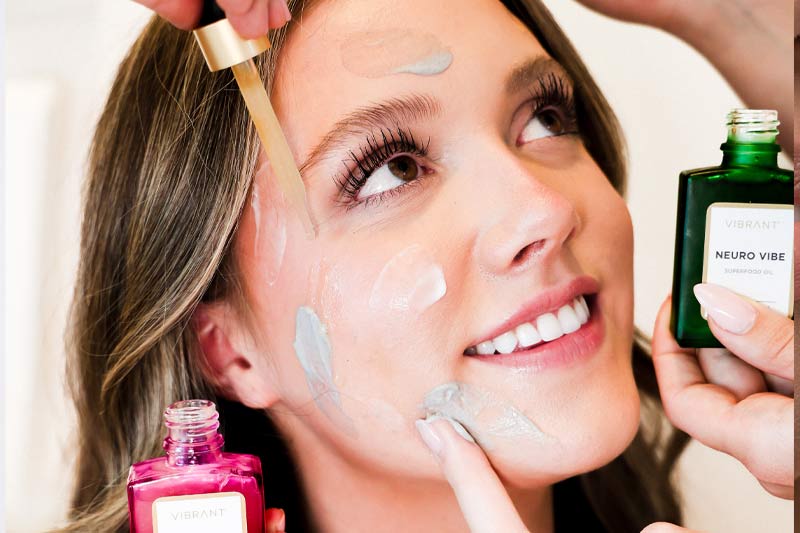
What Causes Skin Barrier Damage?
Various external and internal factors contribute to the weakening of our skin’s protective barrier.
Environmental Factors
Environmental factors that damage the skin barrier include UV radiation, pollution, toxins, harsh chemicals in household cleaning products, extreme weather (cold, dry air, wind, humidity), and more. They strip the skin of protective oils, disrupt the balance of beneficial flora that keeps it healthy, break down its main structural protein (collagen), and deplete it of beneficial nutrients.
Inadequate Skin Care
In our desire to do well by our skin, we often make mistakes that damage the skin barrier and accelerate aging. These mistakes include cleansing too often and over-exfoliating, taking frequent hot showers, and using skincare products with abrasive ingredients. These practices break down the skin barrier’s lipid layer and increase transepidermal water loss, leading to dry skin and related concerns.
Microbiome Dysbiosis
Trillions of bacteria and other microorganisms live in our gut and on our skin, regulating various bodily functions and helping maintain our health. Disruption in microbial balance (due to various reasons) can lead to the proliferation of harmful bacteria, damaging the skin barrier and causing skin problems.
Medications
Medications can dry out the skin and impair barrier function, especially if used over a long period. Drugs known to potentially disrupt the skin barrier include certain antibiotics, corticosteroids, blood-thinners, acne medications such as isotretinoin (Accutane), cholesterol-lowering agents, and immunosuppressants.
Aging
The natural aging process brings about physical changes that weaken skin barrier function. They involve the degradation of structural proteins (collagen and elastin), disruption to lipid synthesis, impaired ability to retain moisture, and increased susceptibility to environmental factors.
Poor Lifestyle Habits
Lifestyle habits, such as excessive sugar intake, alcohol/drug abuse, smoking, lack of sleep, and chronic stress, increase inflammation and reduce the skin’s ability to repair and protect itself. These factors reduce collagen and elastin production and make the skin more vulnerable to environmental damage, accelerating aging.
Common Skin Barrier Myths
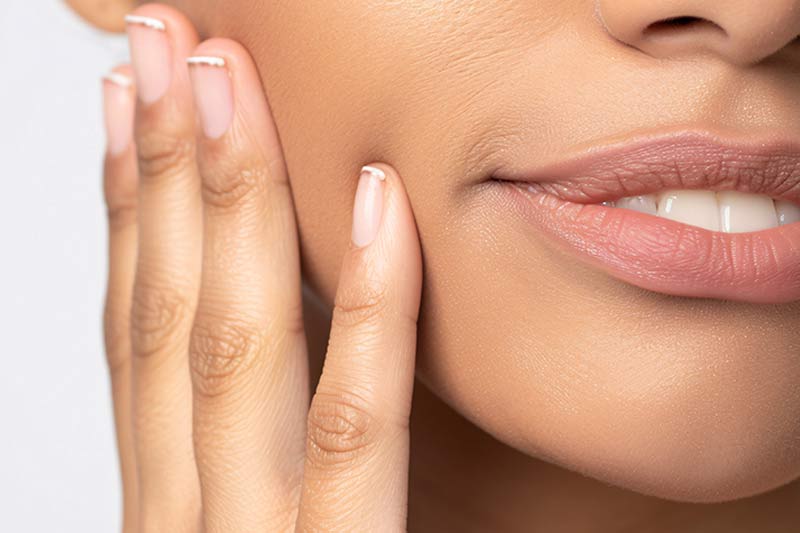
There are many wrong assumptions about proper skin care. Here we debunk five common skin barrier myths, so you can adjust your skincare routine accordingly.
1. Oily Skin Doesn't Need a Moisturizer
Some people believe oily skin doesn’t need a moisturizer, following the logic that oils seal in moisture and prevent water loss. However, preventing water loss is not the same as being hydrated. Oily skin can be dehydrated just like any other skin type, which can perpetuate excess sebum production. Moisturizers formulated for oily skin help balance oil production, hydrate the skin, and repair the skin barrier.
2. Only Facial Skin Needs Barrier-Repairing Products
When discussing skin care, the media typically focuses on the face, perpetuating the myth that other parts of the body don’t need proper skin care. All skin is susceptible to environmental and internal stressors. Use gentle washing gels, occasional body scrubs, and daily hydrating lotions to maintain healthy barrier function from head to toe.
3. You Need Sunscreen Only in the Summer
UV radiation is present throughout the year. It is stronger during hot, clear days, but it continues to break down collagen, elastin, and other skin-building components even through clouds and in cold weather. Cosmetic professionals agree that daily sunscreen use is the most important step in preventing premature skin aging.
4. The More Complicated Skincare Routine, the Better
Many people believe that incorporating more skincare products into their routine equals more nourishment and protection. Often, the opposite is true because too many products can suffocate the skin, clog pores, increase oil production, dehydrate deeper skin layers, and weaken the skin barrier.
5. Expensive Cosmetic Products Are More Effective
The price tag of skincare products doesn’t necessarily indicate effectiveness. What matters are the ingredients, their concentrations, and how they are formulated. Some brands don’t spend much money on marketing, which allows them to maintain a low price on clean, high-performing products.
NOTE: Learn more about what ingredients to look for and how to recognize a barrier-repairing skincare product.
Symptoms of a Damaged Skin Barrier
The symptoms of a damaged skin barrier vary from subtle and barely noticeable to uncomfortable. They include the following:
- Dryness
- Increased sensitivity
- Irritation
- Inflammation and redness
- Itching
- Rough, flaky patches
- Cracked skin
- Wrinkles
- Lax skin
- Discoloration
A compromised skin barrier can also lead to more severe skin conditions, including:
How to Prevent Further Skin Barrier Damage
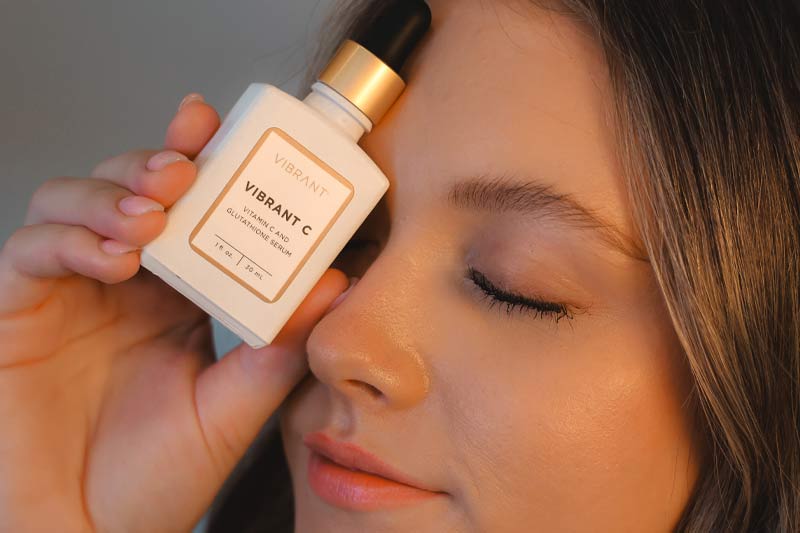
Once you learn what compromises the skin barrier, you can improve your skincare routine. To protect and support skin barrier integrity, follow these practices:
- Cleanse one or two times in the morning and evening. This is sufficient to thoroughly clean the skin of excess sebum and dirt without dehydrating it.
- Use exfoliating masks and other products as recommended (typically 1-2 times weekly) to regulate excess oils and maintain clear, bright skin.
- Refrain from frequent hot showers. One a day is enough.
- Avoid irritating ingredients in skincare products, including sulfates, alcohol, artificial fragrances, and phthalates. Beneficial ingredients can also be abrasive if used excessively. Exfoliating acids (AHAs and BHAs) remove dead and damaged skin cells, but they also dissolve essential oils if overused. Retinol can cause dryness, peeling, and irritation if not used properly.
- Use gentle, microbiome-friendly moisturizers and sunscreen daily.
- Simplify your skincare routine by using fewer, high-quality products instead of using many, which can dehydrate the skin.
How to Repair a Damaged Skin Barrier
Prevention is the best medicine, but some skin barrier damage is inevitable due to factors out of our control. Fortunately, the signs of a compromised skin barrier and aging can be reversed or diminished with adequate skincare products, cosmetic treatments, and improved lifestyle habits.
1. Skin Barrier Repair Products
You can rebuild the skin barrier with the right cosmetic support designed to restore microbial balance, replenish essential skin-building nutrients, and deeply hydrate the skin.
Vibrant Skin has a new line of cosmetic products featuring technologically innovative solutions that support the skin’s innate ability to protect itself from stressors. They are safe for all skin types, including sensitive skin, and highly effective for building a stronger skin barrier. They are suitable for the complete morning and evening skincare routine.
Vibrant Cleanse – Enzyme Biome Cleanser
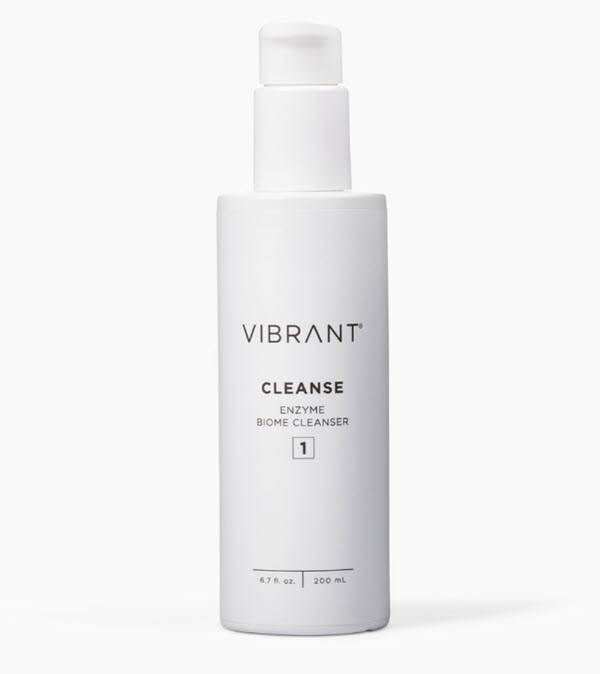
Cleanse is a mild, soothing cleanser formulated with plant-derived enzymes that gently exfoliate the skin and prepare it for active ingredients in serums and creams. The product’s pH value resembles that of the skin and contains probiotics, which helps maintain skin flora homeostasis and restore skin barrier function.
Vibrant Tone – Clarifying Biome Toner
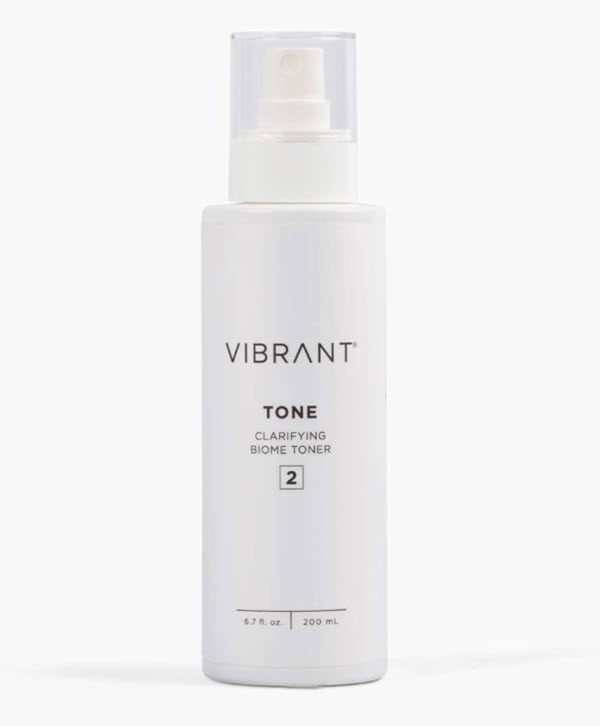
Toners are an optional step in daily skin care. Cosmetic experts recommend them, especially for oily and acne-prone skin, as they balance sebum production and prepare the skin for subsequent products.
Vibrant Tone is packed with barrier-repairing ingredients, including anti-inflammatory Centella asiatica, oil-regulating niacinamide, and microbiome-supporting probiotics. Tone balances the microbiome without stripping the skin of essential oils and has a calming effect.
Vibrant C Serum
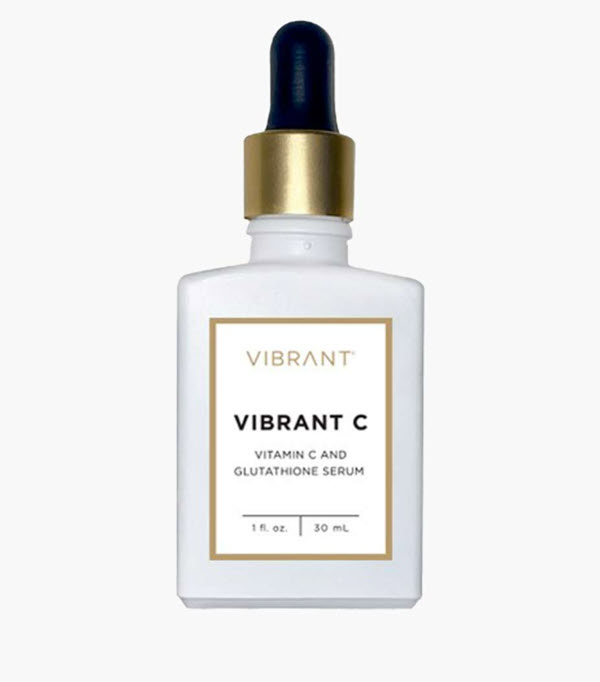
Like toners, serums are considered an optional step in skin care. However, they are often vital in treating compromised skin because they contain concentrated doses of ingredients that address specific cosmetic concerns.
Vibrant C Serum incorporates two of the most potent antioxidants in skin care – vitamin C and glutathione. They protect the skin from free radicals, enhance collagen production, and support healthy skin flora and barrier function.
Vibrant Restore – Clarifying Moisturizer
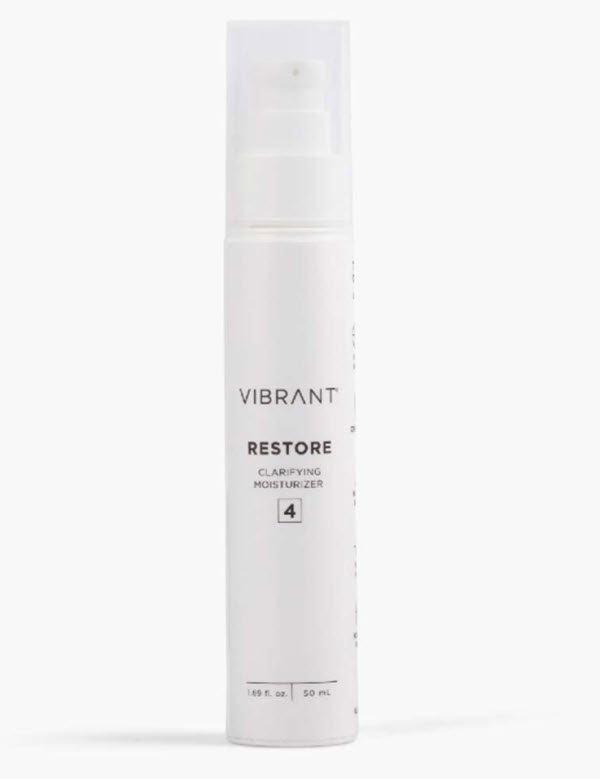
Regular use of moisturizers is essential for restoring and retaining moisture in dry and compromised skin. Vibrant Restore is a good solution for barrier repair, because it soothes, nourishes, and protects with a careful selection of prebiotics, probiotics, healing botanicals, and potent antioxidants.
Total Defense and Repair Sunscreen
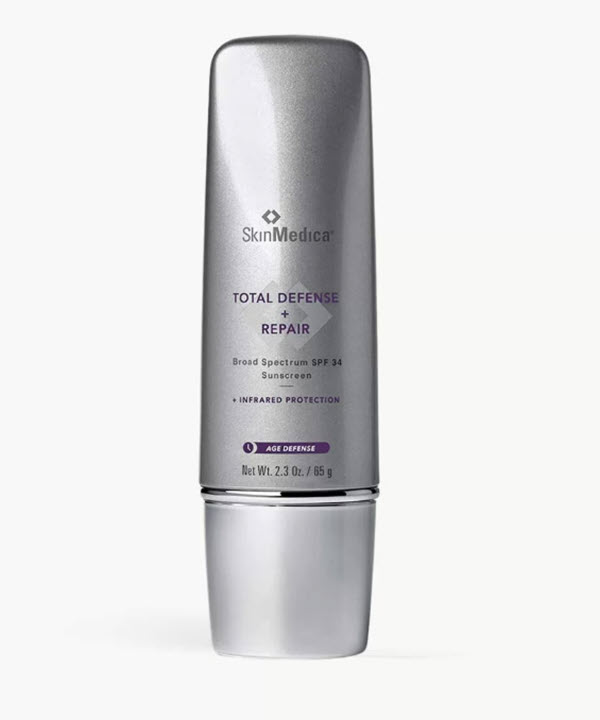
Sunscreen is the final and essential step in a daily skincare routine. Its role is to defend against harmful UV radiation, but some sunscreens go beyond UV protection and help repair existing sun damage. Total Defense and Repair by Skin Medica delivers deep hydration and rejuvenating effects, thanks to a rich blend of lipid-replenishing, antioxidant- and barrier-strengthening ingredients (squalane, shea butter, niacinamide, etc.).
Skincare experts often recommend supplementing the skincare routine with suitable dietary products that replenish moisture levels and accelerate barrier repair.
Vibrant Biome
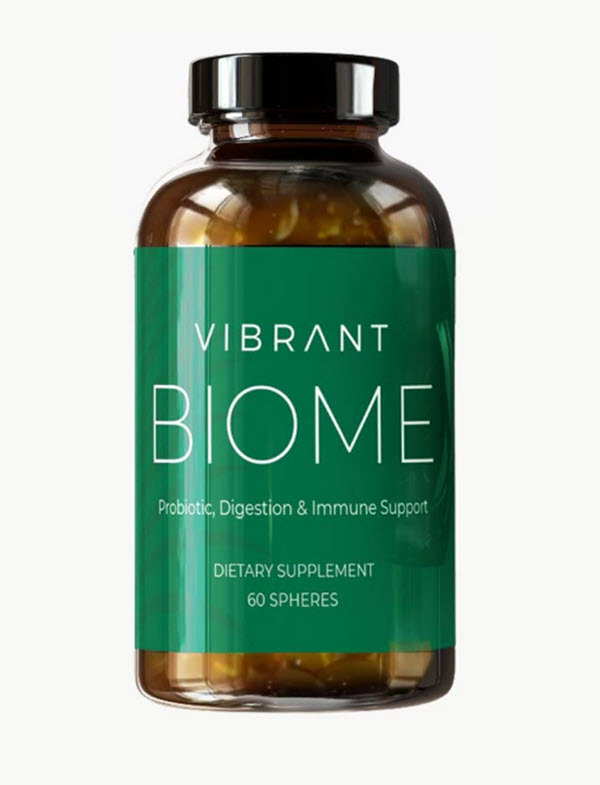
Skin and gut health are closely related. An imbalance in the gut microbiome has a knock-on effect on the skin flora, disrupting the skin barrier and leading to inflammation. Vibrant Biome regulates the balance of gut microbiota, improves immune function, and builds a stronger skin barrier.
Vibrant Collagen
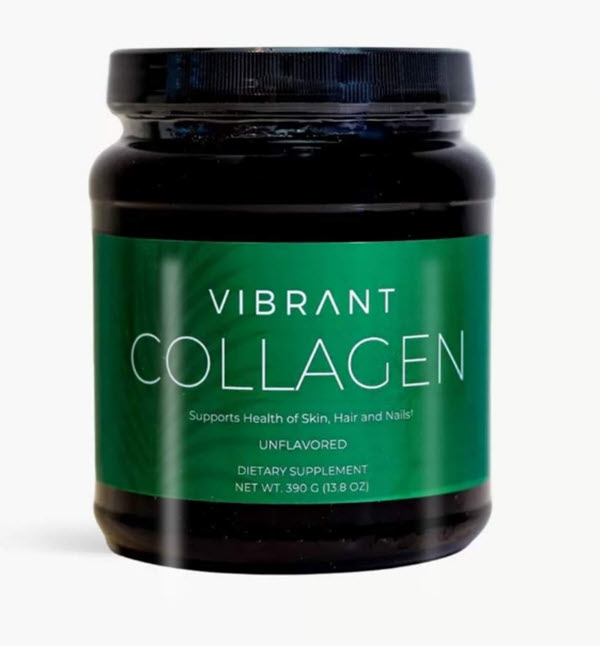
Collagen is a protein vital in maintaining supple and resilient skin. Vibrant Collagen is formulated with three patented collagen peptides, which help increase hydration and promote collagen and elastin synthesis.
Vibrant Skin Brilliance
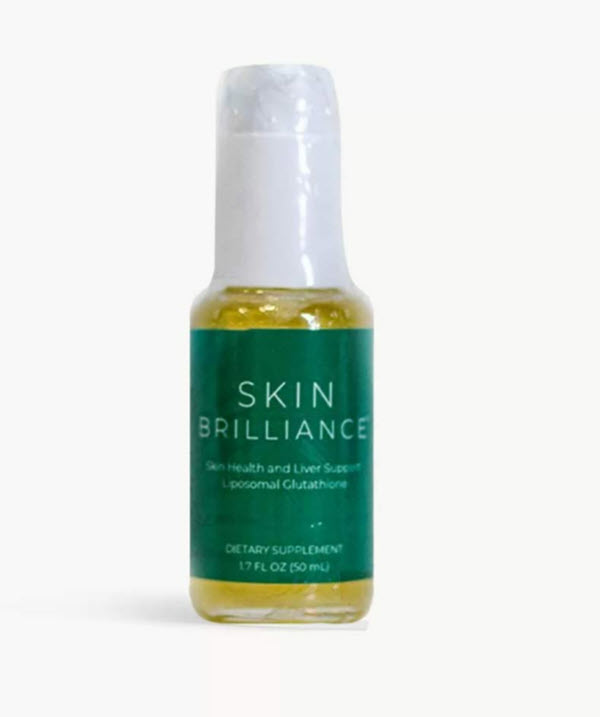
Liposomal glutathione in Skin Brilliance supports the skin in multiple ways, from providing antioxidant protection to promoting detoxification. Regular use may reduce oxidative DNA damage in skin cells, even out skin tone, and brighten complexion.
2. Skin Barrier Repair Treatments
Technological innovations have given rise to impressive, minimally invasive cosmetic treatments. Many of them treat multiple skin concerns and address the underlying causes of problematic skin, such as declining collagen and a weakened skin barrier.
Red Light Therapy
Red light therapy involves the use of a laser or LED device, which sends red and near-red light into deep dermal layers, promoting cellular repair and stimulating collagen and elastin production. The treatment reduces inflammation, improves barrier function, and builds firmer, rejuvenated skin.
Patients who want to save time and achieve the same results without going to a clinic can use Omnilux. It is a powerful, at-home LED mask that uses 132 red and near-infrared lights to stimulate new collagen, reduce wrinkles and sun damage, and build a stronger barrier.
After red light therapy, our cosmetic professionals recommend using Vibrant Elevate – Cucumber Photodynamic Toner. This product helps absorb the healing light and contains powerful ingredients that accelerate skin barrier repair after the treatment. Antioxidants like chlorophyll, matcha green tea, and astaxanthin protect the skin from free radicals and oxidative damage, while moisture-generating ingredients (cucumber extract, prebiotics, Manuka honey, etc.) prevent water loss and improve the skin’s resilience.
Microneedling
A microneedling treatment utilizes a device with tiny, sterile, short needles to create controlled micro-injuries on the skin’s surface. These intentional channels allow nourishing treatment serums to be delivered for optimal penetration. The treatment process stimulates the body’s natural healing response, stimulating the production of collagen and elastin and strengthening the skin’s structure.
Oxygen Infusion
Oxygen Infusion is a facial treatment that involves the use of a compression device to deliver a concentrated stream of oxygen onto the skin. The rush of oxygen refreshes skin cells, increases circulation, and promotes the absorption of hydrating serums applied during the treatment.
HydraFacial
HydraFacial involves three steps: exfoliating the top skin layer, extracting impurities while delivering moisturizing serums into the cleansed pores, and infusing the skin with customized serums and creams. HydraFacial’s deeply hydrating and nourishing ingredients visibly rejuvenate the skin, and regular treatments can lead to a stronger skin barrier.
Note: Learn how Oxygen Infusion and HydraFacial differ and which treatment is better for skin barrier repair.
Lymphatic Lift
A combination of buccal massage and lymphatic drainage, Lymphatic Lift improves blood flow, facilitates metabolic waste removal, and reduces inflammation. The treatment helps alleviate various skin concerns related to toxin buildup.
3. Skin Barrier Repair Through Lifestyle Changes
A healthy lifestyle is the third pillar of your skin barrier-repairing strategy. Positive lifestyle changes not only reflect on the skin but also reduce the risk of many chronic health conditions and may help promote longevity.
Widely known (but not as widely practiced) lifestyle habits that support skin repair and overall health include:
- A balanced diet high in fruits, vegetables, healthy fats, lean protein, and probiotic-rich fermented foods.
- Minimal intake of sweets, ultra-processed snacks, sugary drinks, and alcohol.
- Regular exercise and daily walks.
- Stress relief through meditation, breathing exercises, art, socializing, and other relaxing activities.
- A consistent sleep routine, aiming for seven to nine hours of sleep every night, and going to bed before 10 p.m.
When to Consult a Professional
Dry skin, redness, and other signs of a damaged skin barrier can lead to more severe skin conditions. Contact a medical professional if you experience painful or otherwise uncomfortable skin issues, such as the following:
- Pus-filled, swollen, and painful acne
- Frequent acne breakouts
- Excessive dryness and itching
- Cracked and bleeding skin
- Persistent infections
- Uncomfortable rashes and hives
Conclusion
The skin barrier works hard to shield us from environmental harm and internal stressors. A weakened skin barrier results in moisture loss, a decline in structural proteins, and accelerated aging. Long-term skin barrier damage can also lead to more severe conditions.
Incorporate daily barrier-supporting activities, such as targeted, consistent skin care and healthier lifestyle habits. The benefits vastly outnumber the potential struggles, and your skin will repay you with a radiant glow.


